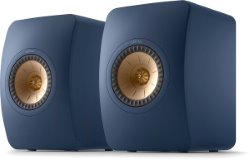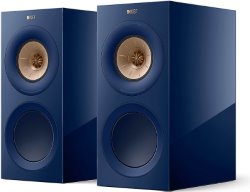KEF LS50 Meta vs. KEF R3 Meta
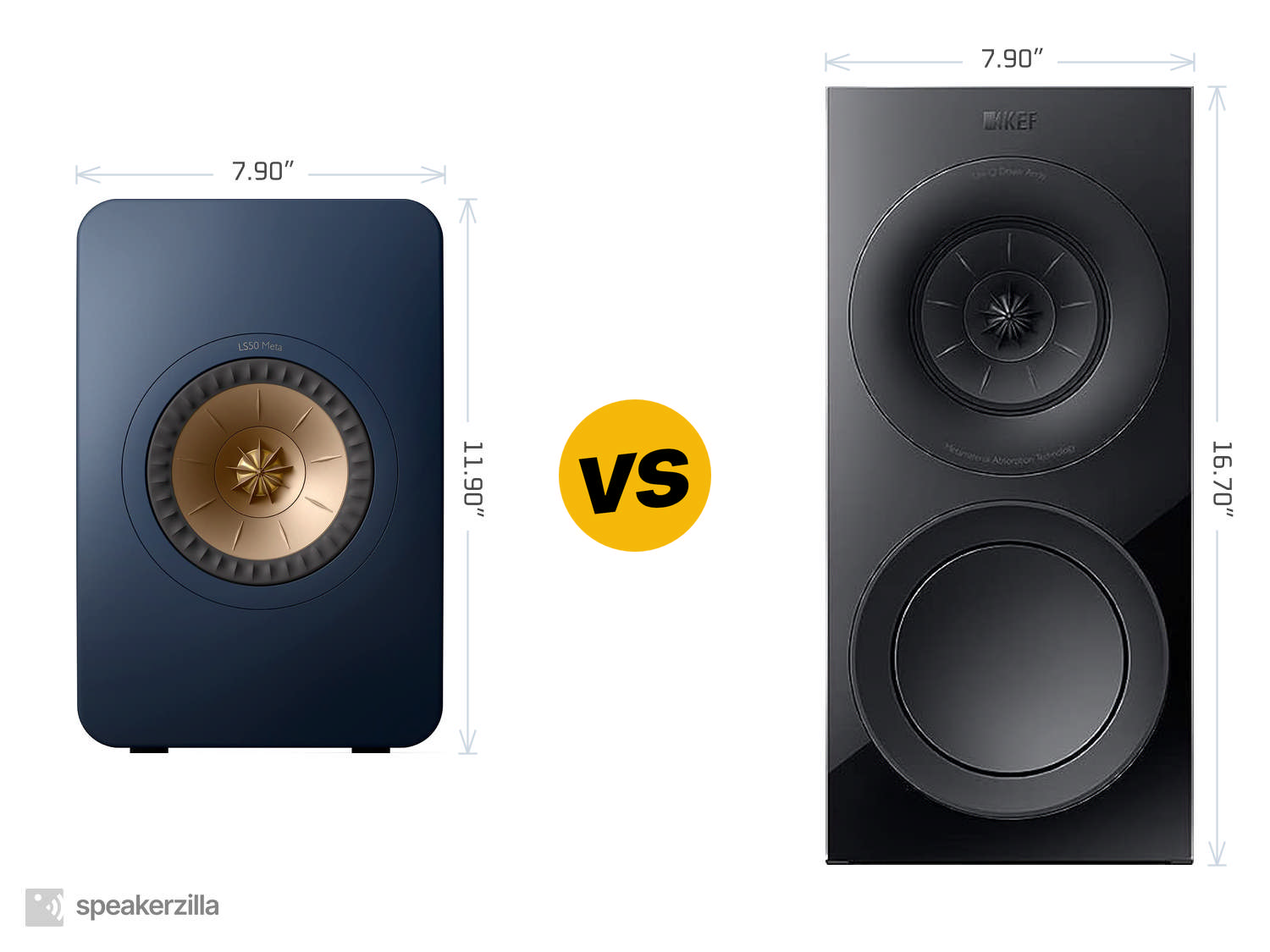
| KEF LS50 Meta Bookshelf Speakers | KEF R3 Meta Bookshelf Speakers |
| MSRP | |
| $1600 | $2200 |
| Dimensions (H × W × D) | |
|
11.90” × 7.90” × 11.00” 302mm × 201mm × 279mm |
16.70” × 7.90” × 13.50” 424mm × 201mm × 343mm |
| Power Type | |
| Passive | Passive |
| Frequency Response | |
| 79-28,000 Hz | 58-28,000 Hz |
| ASR Score | |
| 4.6 | n/a |
| ASR Score w/Subwoofer | |
| 6.7 | n/a |
|
Amazon.com
|
Amazon.com
|
Key Takeaways
TLDR Summary: The KEF LS50 Meta and KEF R3 Meta are both stellar examples of KEF's pioneering Uni-Q driver array, delivering detailed and spacious sound from their compact, bookshelf designs. The LS50 Meta, an evolution of the acclaimed LS50, offers a refined listening experience with its innovative Metamaterial Absorption Technology (MAT) for purer sound. The larger R3 Meta, meanwhile, provides deeper bass and greater scale with its additional drivers and size. Both speakers embody KEF's commitment to high-fidelity audio, but the choice between them hinges on room size, bass preferences, and whether one prioritizes space-saving elegance or a more commanding presence.
Speaker Comparison
The quest for the perfect bookshelf speaker is a journey filled with nuances and subtleties that can only be appreciated by a true audiophile. The KEF LS50 Meta and the KEF R3 Meta are two contenders that stand out in the market, both promising an immersive listening experience wrapped in a compact form. While they share a lineage, these two speakers cater to slightly different sensibilities and settings, and distinguishing between the two requires a closer look at their design, performance, and overall value.
The Legacy of KEF's Uni-Q Driver Array
At the heart of both the LS50 Meta and R3 Meta lies KEF's iconic Uni-Q driver array, which is the centerpiece of their acoustic design. This coaxial setup places the tweeter in the acoustic center of the midrange cone, aiming to create a more detailed and integrated sound. It's a technology that KEF has continuously refined, and in the Meta series, it's been further enhanced with the addition of Metamaterial Absorption Technology (MAT), which is designed to absorb unwanted sound to deliver purer performances. While both speakers benefit from this technology, the difference in size and application between the LS50 Meta and R3 Meta's Uni-Q drivers leads to distinct sonic signatures.
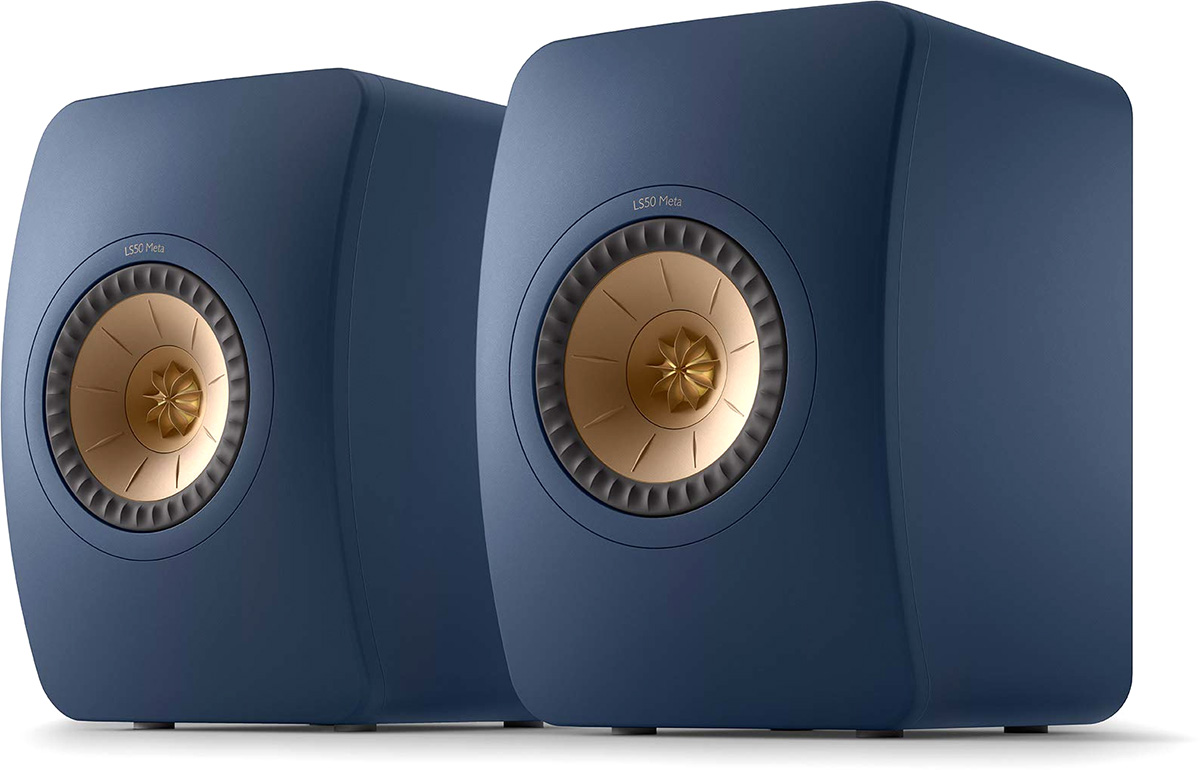
 (at Amazon.com)
(at Amazon.com)The Compact Versus The Full-Range
When it comes to size, the LS50 Meta is the more compact of the two, designed to fit in more confined spaces or to be used in a near-field listening environment like a desktop setup. The R3 Meta, on the other hand, is larger and is considered a full-range bookshelf speaker. This size difference is not just cosmetic but also influences the soundstage and bass response. The R3 Meta's larger cabinet and drivers allow for a more extended low-end and a larger-scale sound that can fill a room with greater ease than the LS50 Meta. However, the LS50 Meta's smaller dimensions contribute to its ability to disappear in the room, creating a sound that feels detached from the speakers themselves, which is a trait highly prized by some audiophiles.
Performance: Detail and Depth
The KEF LS50 Meta shines with its remarkable clarity and precision. It's a speaker that can unravel the layers in a piece of music with surgical accuracy, making it a favorite for critical listening sessions. Its sound is characterized by a sparkling top end, a transparent midrange, and a tight, albeit limited, bass response. The R3 Meta builds on this foundation by offering a richer and fuller sound. The larger driver and increased cabinet volume yield a more substantial bass that doesn't shy away from depth or power. This makes the R3 Meta a more versatile performer, capable of handling a wider range of genres and room sizes without compromising on the detail that KEF is known for.
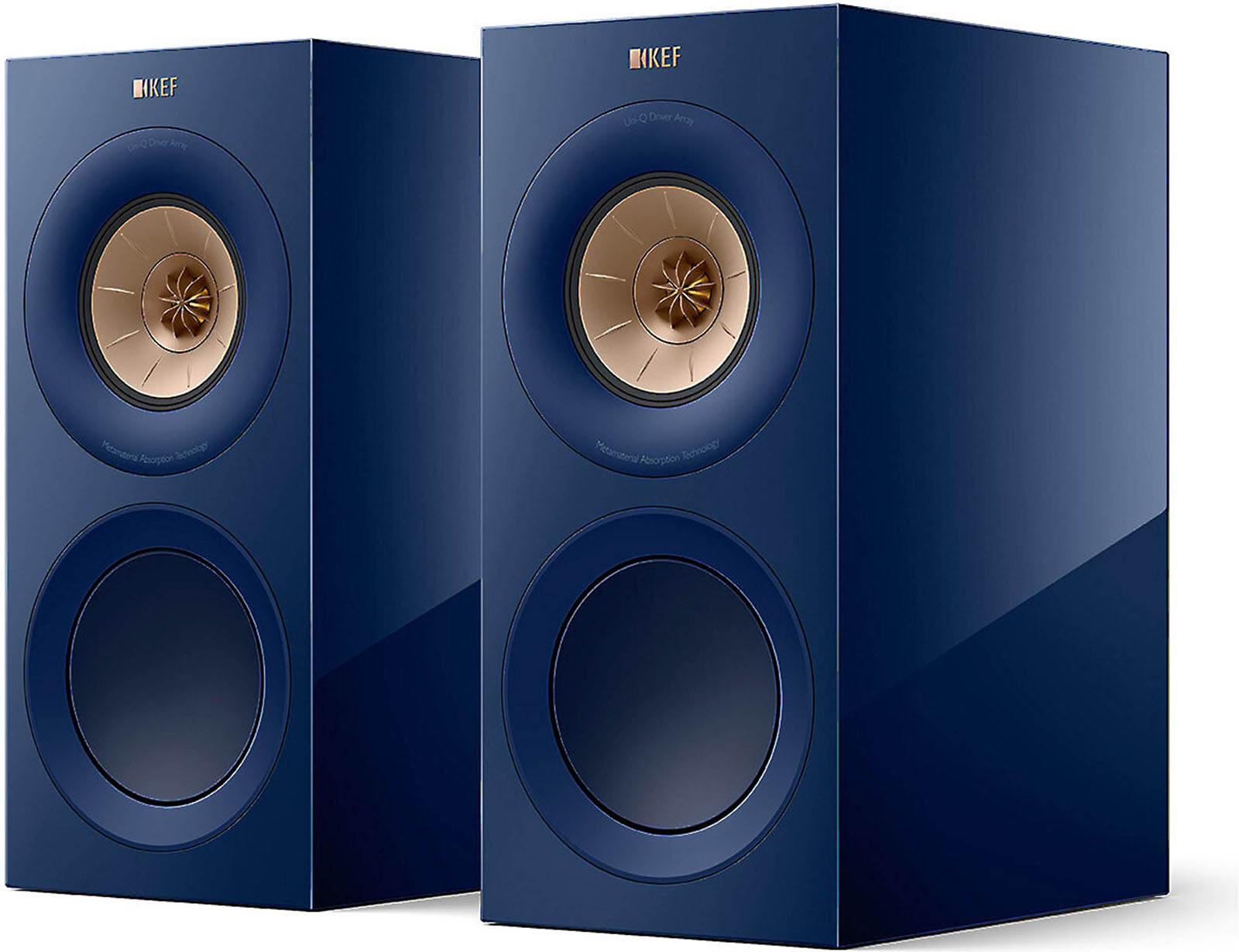
 (at Amazon.com)
(at Amazon.com)Room Dynamics and System Synergy
The interaction between speaker and room is an inescapable element of the listening experience, and both the LS50 Meta and R3 Meta engage with their environment in different ways. The LS50 Meta, being smaller, is less dominant in its presence and can be more forgiving when it comes to room placement. It's an ideal choice for those with limited space or who prefer a more intimate sound. Conversely, the R3 Meta, with its larger footprint, demands more attention to positioning to optimize its performance, particularly in the lower frequencies. Furthermore, the differences in sensitivity and impedance between the two models will affect amplifier pairing, with the R3 Meta potentially benefiting from a more robust amplification to realize its full potential.
Compare to similar speakers
In terms of aesthetics, both the LS50 Meta and R3 Meta uphold KEF's reputation for producing speakers with a high-quality finish and modern appeal. The LS50 Meta's compact and unique design can complement any decor, while the R3 Meta, though larger, maintains a sleek and contemporary appearance. Both models are available in a range of finishes, allowing them to blend seamlessly into the style of their surroundings or stand out as a statement piece.
Ultimately, choosing between the KEF LS50 Meta and the KEF R3 Meta comes down to personal preference, listening habits, and the specifics of one's audio environment. The LS50 Meta, with its compact size and exceptional imaging capabilities, is perfect for the detail-oriented listener. The R3 Meta, on the other hand, offers a more expansive sound and deeper bass, suitable for those looking to fill larger spaces or seeking an all-rounder that excels across various musical genres. Both speakers represent KEF's commitment to innovation and audiophile-grade performance, making the decision a delightful dilemma for any sound aficionado.
- KEF LS50 Meta reviews and FAQs
- KEF R3 Meta reviews and FAQs
Check Current Prices: |
|
|
Amazon.com
|
Amazon.com
|
Affiliate Disclosure: As an Amazon Associate, we earn from qualifying purchases.
